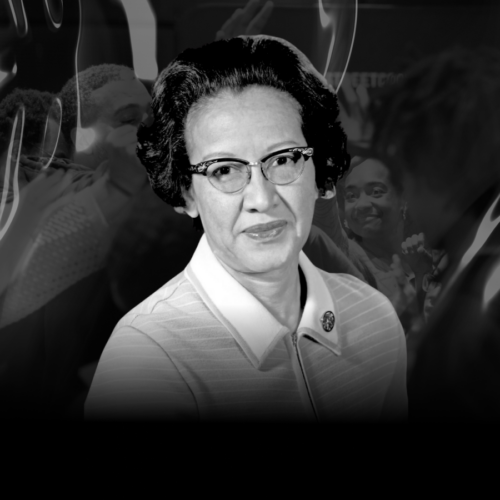black tech legacy

Katherine Johnson
Katherine Johnson was born in White Sulphur Springs, West Virginia, and quickly advanced through high school because of her intense interest and demonstrated expertise in mathematics. She attended West Virginia State College where she graduated with highest honors in 1937 with a bachelor of science degree in mathematics and French, and took a job teaching at a black public school in Virginia. When West Virginia decided to quietly integrate its graduate schools in 1939, she was one of the first three African-Americans selected to desegregate West Virginia State College. After the first session, however, she decided to leave school and start a family with her husband James F. Goble. When their three daughters got older, she returned to teaching.
She learned that the NACA Langley Aeronautical Laboratory was hiring a group of African-American mathematicians with teaching experience to perform mathematical calculations that transformed raw data that had been obtained using instrumentation into final engineering parameters. She began her career at Langley in the segregated West Computing section in the summer of 1953 under the supervision of fellow West Virginian Dorothy Vaughan. The pool of women mathematicians performing data reduction calculations were known as “computers.”
Johnson made valuable contributions to critical aeronautics and space programs of the NACA and NASA. Overcoming the constraints of segregation and gender bias, she progressed from mathematical tasks, such as computing experimental flight and ground-test data using a mechanical Frieden calculator for the NACA, to the application of spacecraft trajectories and spacecraft control calculations for NASA
Her legacy includes an extraordinary social impact as a pioneer in space science and computing that may be seen both from the honors she has received and the number of times her story is presented as a role model to aspiring young people. Awarded the Presidential Medal of Freedom
President Barack Obama awarded Johnson the Presidential Medal of Freedom, citing her as a pioneering example of African-American women in science, technology, engineering, and mathematics (STEM). In 2016, NASA dedicated a new Katherine G. Johnson Computational Research Facility at the Langley Research Center. Dr. Johnson was included in the list of “BBC 100 Women”, a list of 100 inspiring and influential women from around the globe. Her awards include the Astronomical Society of the Pacific’s Arthur B.C. Walker II Award (2016); a NASA Silver Snoopy award (2016); an Honorary Doctorate of Science from Old Dominion University (2010); an Honorary Doctor of Science by the Capitol College, Laurel, Maryland (2010); the West Virginia State College Outstanding Alumnus of the Year (1999); and an Honorary Doctor of Laws, from SUNY Farmingdale (1998).
